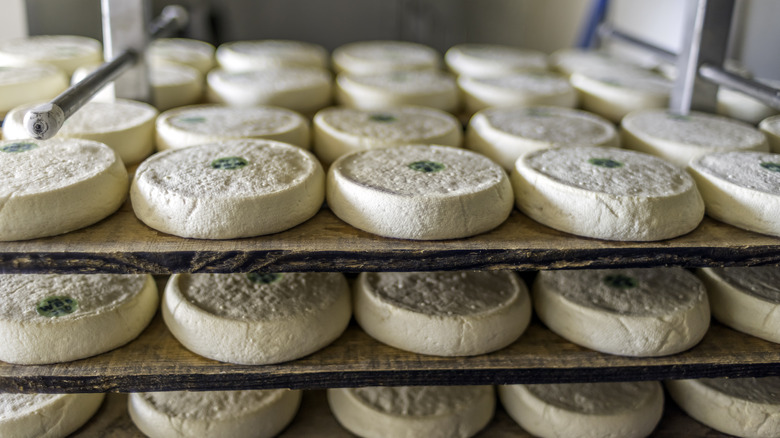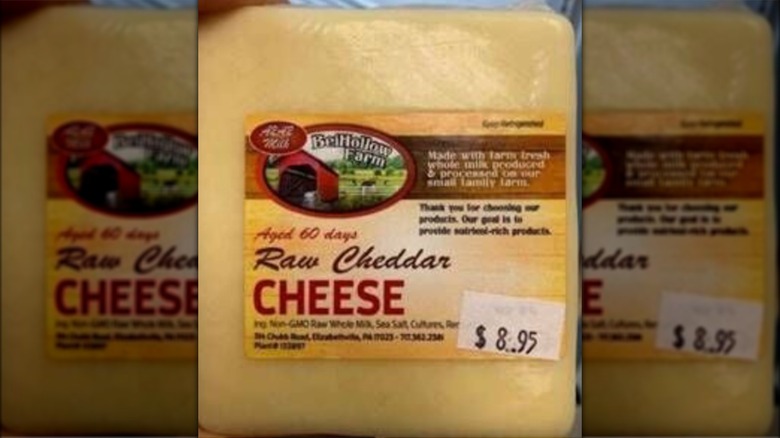Pennsylvania Farm Refuses To Recall Raw Milk Cheese Despite Listeria Concerns
Raw milk cheese is infamously risky to consume due to the unpasteurized milk used to make it. Now, the controversial dairy products has been linked to Listeria contamination in The Keystone State.
The Pennsylvania Department of Agriculture discovered the Listeria bacteria during regular FDA-mandated testing, reports Food Safety News. Department representatives purchased two packages of the BeiHollow raw milk cheese from Racoon Valley Farm in Millerstown, Perry County, and detected the bacteria. BeiHollow Farm in Elizabethville, Dauphin County has been alerted about the problem but refused to issue a voluntary recall. It also declined to assist the agriculture department in uncovering where the Listeria originated.
Due to the one-sidedness of this investigation, a number of important recall-related details remain unknown. It's unclear how many retail locations have distributed or are currently carrying the affected batch. It's also unknown how many (if any) consumers have reported illnesses in connection to ingesting the BeiHollow raw milk cheddar cheese. Consumers who have purchased the product are being advised to discard it. BeiHollow brand also had a Listeria incident back in 2022. That time, it didn't involve cheese but rather raw whole and chocolate milk. During the 2022 investigation, the company refused to supply information about where its contaminated milk was sold.
Raw milk products have made people ill
During the pasteurization process, raw milk is sterilized by heating and being held at a higher temperature for long enough to kill any lingering harmful bacteria. The CDC advises against the sale and consumption of raw milk products altogether. In the U.S., it's illegal to sell cheese made from unpasteurized milk across state lines. But, some foodies have a real taste for it. The risk of raw milk cheese carrying any harmful bacteria is low if producers follow strict sanitation processes during manufacturing.
Still, complications involving contamination have made headlines in recent years. In 2023, raw milk from a producer in Fresno, California was recalled after a Salmonella outbreak sickened at least 19 people in Orange and San Diego counties and sent at least three people to the hospital. So, why do modern foodies still choose it? Carlos Yescas, co-founder of the artisan cheese distribution company Lactography and judge at the World Cheese Awards, told Scientific American that the food had become trendy among a certain subset of people who wanted a "high-end lifestyle." According to Yescas, "For a while it was about ease, with Velveeta, Kraft Singles, and all of that kind of cheese. Now people want what seems real."

